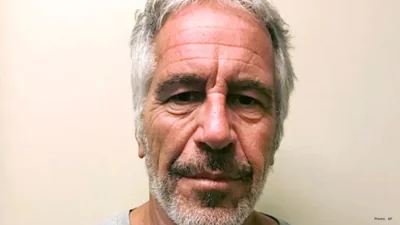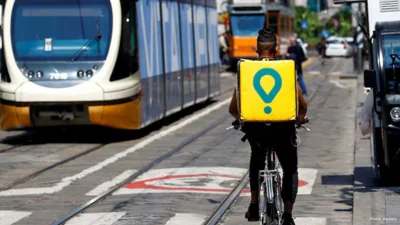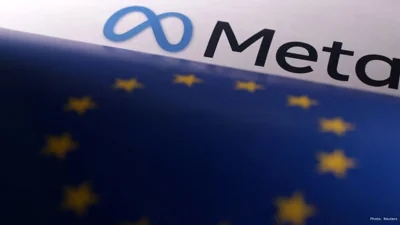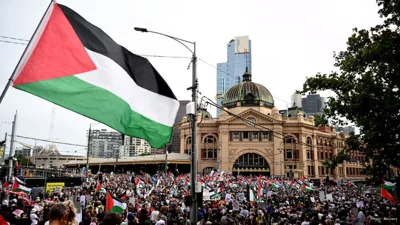
Post by : Anees Nasser
For decades, Iraq’s economy has relied largely on oil exports, yet the nation’s devastating conflicts and decade-long reconstruction efforts limited recovery and diversification. Now, rising from those shadows is the bold Development Road Project—a strategic initiative connecting Iraq’s deepwater Grand Faw Port in the south to the Turkish border, with railways, highways, and logistics infrastructure at its core. With a price tag of approximately $17 billion, this corridor promises to drastically reduce trade transit times, create economic opportunity, and re-establish Iraq as a regional trade powerhouse.
Following years of turmoil, Iraq is transitioning into a development phase, aiming to diversify its economy and build resilience. The Development Road sits at the heart of this ambition, offering a modern alternative to traditional maritime pathways. Anchored by significant regional support, including commitments from Türkiye, Qatar, and the UAE, the project is being built across three phases, with the first major infrastructure scheduled for completion by 2028 and full operational capacity between 2030 and 2050.
The Grand Faw Port is envisioned as one of the Middle East’s largest maritime gateways. With its record-breaking 14.5-kilometer breakwater and deepwater berths, it is set to accommodate the largest container ships on the globe. Expected to handle millions of containers annually, the port will be the southern terminus of a 1,200-kilometer corridor of roads, railways, and logistics zones leading northward toward Europe via Türkiye.
One of the most game-changing aspects of the Development Road is its dramatic reduction in transit times. Journeys that once took well over two weeks—navigating via Suez or detouring around Africa—can now be accomplished in under ten days. Truckers from Poland to the Gulf have completed full round trips in roughly ten days, compared to historical averages of over twenty. Turkey-to-Kuwait routes, likewise, now take just around seven days, thanks in part to near-instant digital border processing and the newly operational TIR transit system.
The global TIR transit system went live in Iraq in early 2025, combining digital pre-clearance, secure freight corridors, and streamlined transits under internationally agreed standards. With the TIR system in place, Iraq effectively facilitates faster, safer trade—a vital ingredient for regional logistics, economic growth, and attracting business investment.
Regional conflicts and risks to maritime routes—especially the Suez Canal—have exposed vulnerabilities in global trade. By offering an overland corridor less subject to maritime disruptions, Iraq provides businesses with a resilient alternative. This, in turn, optimizes procurement cycles, reduces inventory costs, and expands sourcing flexibility while reviving ancient Silk Road routes for the 21st century.
Beyond infrastructure, the Development Road Project underpins the formation of new economic corridors dotted with logistics hubs, industrial zones, and even future urban centers. These zones promise to spawn manufacturing clusters and support services, attracting local and global investors while creating hundreds of thousands of jobs within Iraq.
Complementing the road network, the World Bank recently approved substantial funding—nearly $930 million—to modernize Iraq’s railway system. This revamp will enhance freight capacity between the southern port region and northern cities, enabling seamless movement of goods, increasing connectivity, and reinforcing Iraq’s transformed logistics framework.
The Development Road reflects more than infrastructure—it represents geopolitical ambition and regional integration. With strategic partnerships from Türkiye, Qatar, and the UAE, the project signals Iraq’s renewed position as a nexus for regional collaboration, bridging Asia, the Gulf, and Europe. It intertwines with broader economic visions like China's Belt and Road Initiative and cross-regional corridors, embedding Iraq in a critical trade network.
By fostering efficient trade routes, Iraq stands to significantly enhance its revenue from customs, services, and non-oil sectors. Transit fees, services to freight operators, and economic activity in corridor hubs promise substantial financial returns, while industrial growth supports job creation and economic diversification.
Despite its transformative potential, the Development Road faces challenges. Efficiently implementing cross-border governance, ensuring security across conflict-prone areas, and delivering multi-phase infrastructure on time are formidable tasks. Moreover, balancing geopolitical sensitivities—including alliances and regional dynamics—will determine long-term success.
More than just an infrastructure scheme, the Development Road embodies Iraq’s aspiration to rebuild itself as a central artery in regional and global trade. By shortening distances, deepening partnerships, and expanding possibilities, it offers a path toward renewed economic growth, institutional strength, and renewed international relevance.
This article is intended for informational and editorial use only and does not serve as financial or investment advice. It reflects ongoing public developments related to Iraq’s Development Road Project. Readers are encouraged to consult official reports and trusted sources before drawing conclusions or making decisions.










Mattel Revives Masters of the Universe Action Figures Ahead of Film Launch
Mattel is reintroducing Masters of the Universe figures in line with its upcoming film, tapping into

China Executes 11 Members of Criminal Clan Linked to Myanmar Scam
China has executed 11 criminals associated with the Ming family, known for major scams and human tra

US Issues Alarm to Iran as Military Forces Deploy in Gulf Region
With a significant military presence in the Gulf, Trump urges Iran to negotiate a nuclear deal or fa

Copper Prices Reach Unprecedented Highs Amid Geopolitical Turmoil
Copper prices soar to all-time highs as geopolitical tensions and a weakening dollar boost investor

New Zealand Secures First Win Against India, Triumph by 50 Runs
New Zealand won the 4th T20I against India by 50 runs in Vizag. Despite Dube's impressive 65, India